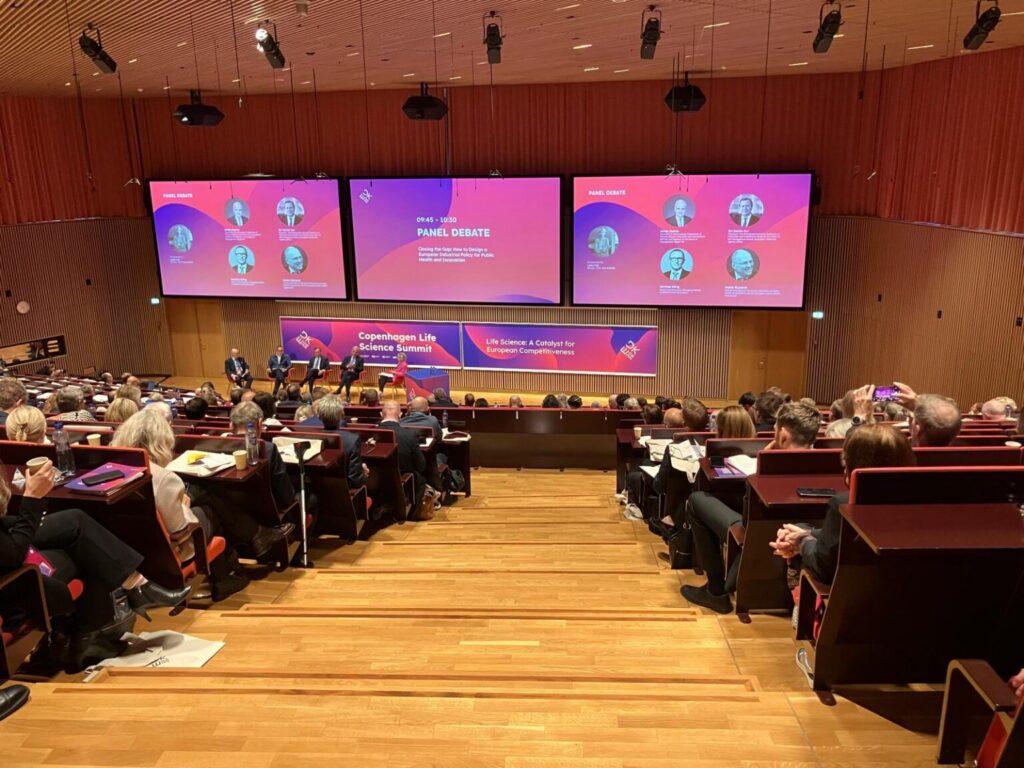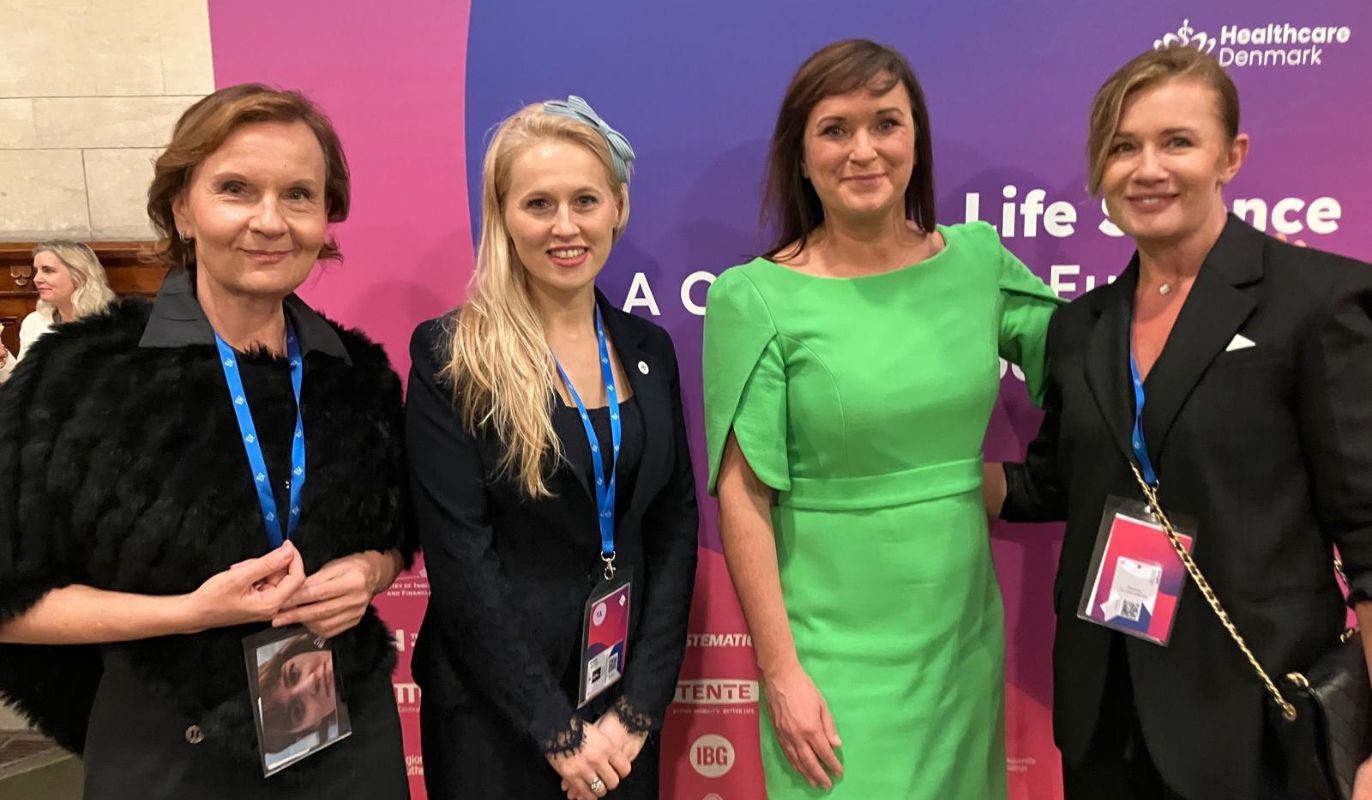The two-day Copenhagen Life Science Summit, organized under the Danish Presidency of the European Union, has come to an end.
Two days of presentations, panels, discussions, and international networking were devoted to exploring the determinants of Europe’s competitiveness in the field of medical and social sciences.

Among the speakers were key decision-makers from across the European health ecosystem – representatives of academia, national and international administration, the social sector, and business.
Dr. Małgorzata Gałązka-Sobotka and Marta Pawłowska took part in the event and returned from Copenhagen with a clear message: Europe needs a conscious alliance and a new approach to health – one that is supranational and interdisciplinary.
The European House of Health – A Common Challenge
Building a European House of Health is a strategic direction that requires cooperation across borders and sectors.
Europe speaks 24 languages and operates 27 different healthcare systems, while at the same time facing growing competitive pressure from the U.S. and China.
Only an integrated approach will enable Europe to maintain its position as a leader in health innovation and solidarity in public health.

A Common Strategy for Health
Europe needs a single, coherent health strategy, based on a shared voice and coordinated action.
In the area of civilization diseases such as obesity, swift and consistent decisions are particularly urgent.
The time for debate is over – the time for action has come.
The new health strategy should take into account a comprehensive social ecosystem, encompassing all dimensions of human development, and ensure effective participation of public administration, academia, business, and the social sector.
Public-Private Partnership (PPP) – A Catalyst for Innovation
Public-private partnerships are key to advancing life sciences and creating effective solutions for health prevention.
However, most European countries still lack a supportive environment for PPP development – trust, incentives, and a shared narrative are missing.
Often confused with philanthropy, PPP needs a redefinition and a new mindset of shared responsibility.

The Danish approach can serve as an inspiration for all of Europe: long-term partnerships based on clear political frameworks, transparent governance, and a culture of trust accelerate innovation, strengthen healthcare systems, and deliver tangible benefits for patients.
In Denmark, PPP in healthcare is not a form of outsourcing services, but a method of jointly addressing complex social problems that neither the public nor private sector can solve alone.
Health Culture and the Power of Communication
Building a culture of health requires legislative changes, new business practices, and improved health and consumer literacy.
It is communication – consistent, strategic, and sustained – that plays a key role in advancing health policy.
We need dialogue and a culture of exchange among all stakeholders in the system – from policymakers to citizens.
Effective communication should activate, reinforce shared responsibility, and build trust between the public sector, academia, business, and society.

Obesity – One of Europe’s Most Pressing Challenges
The key takeaway from the Copenhagen Life Science Summit is clear:
obesity is one of the most serious health, social, and economic challenges facing Europe today.
That is why we are taking action to develop an international strategy for the prevention, diagnosis, and treatment of obesity, strengthening cooperation between the scientific community, public administration, and business.
Because health today is a global race for competitiveness – and only joint, responsible action in the spirit of partnership will enable Europe to win that race.

